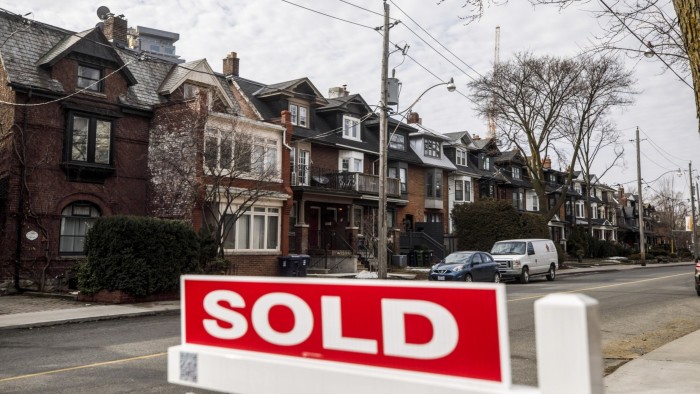Unlock the Editor’s Digest for free
Roula Khalaf, Editor of the FT, selects her favourite stories in this weekly newsletter.
Home buyers, it appears, should stay home. Spain wants to slap a 100 per cent tax on property purchases by non-EU nationals.
Plenty of countries, from the UK to Hong Kong, have similar if more modest taxes in place. Australia, New Zealand, Canada and Denmark are less welcoming still.
Governments reckon keeping foreign buyers out will keep a lid on prices, making homes more affordable for their citizens. It is a fair aim but a dreadful method; mainly because it doesn’t work.
Foreign buyers are usually rich and largely focus on prime spots; smaller levies barely change the calculus, especially if the driving force is lifestyle, education or the desire to park money in a stable economy. Bigger levies too address only one strand of housing prices, which reflect supply, employment, economic growth, interest rates — the whole caboodle.
Take Canada, which offers the closest proxy to a 100 per cent tax. Ottawa implemented a two-year ban on foreign ownership in January 2023 and subsequently extended it to January 2027. One year in, rent-to-income ratios in Halifax rose to 28 per cent, from 25 per cent in 2019, according to the state-backed Canada Mortgage and Housing Corporation.
Getting on the housing ladder in Toronto and Vancouver turns out to be even harder without the foreign buyers that once swooped on the two cities. Those earning the median income only get a look in at one in seven homes for sale, less than half those they could have bid on in 2019.
If eliminating or deterring foreign investors fails to help affordability in hotspots, expect even less of a leg-up in the hinterlands. About 35 per cent of the UK’s foreign buyers target London, according to estate agent Hamptons. That has zero impact on a two-up, two-down in Hull.
Any dip in prices at the top in the past two years has been marginal and reflects many other factors at play, including war and pre-Budget jitters.
British data throws up another reason to welcome foreign buyers: some of them stay. Almost a fifth of the non-international transactions in the past 12 months merited refunds, which are offered to those who spend more than 180 days in situ. That represents a net benefit assuming these buyers are eating, drinking and shopping in the UK too.
Critics cavil that, even in Spain, buyers will simply avail themselves of loopholes, making their purchases through EU-based shell companies. But with so much at stake, Spain will surely be alert to such ruses. Still, that is academic. With little to justify it, the tax should never see the light of day.
louise.lucas@ft.com
Read the full article here

